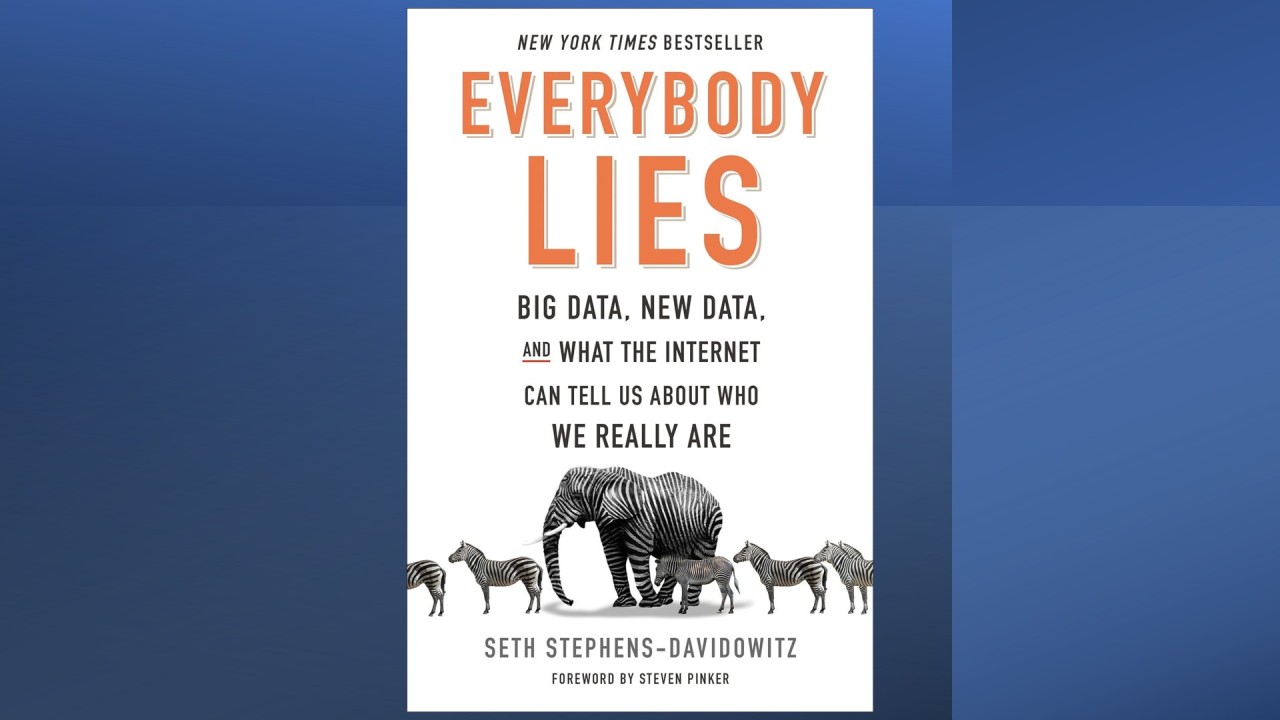
"Everybody Lies: Big Data, New Data, and What the Internet Can Tell Us About Who We Really Are" by Seth Stephens-Davidowitz
Everybody Lies advocates that internet data (more specifically, "google searches" provide more true insights into human behavior, prejudices, desires, and fears.
The premise for this is straightforward and compelling: People are more honest when they type into the anonymous box of a search engine than in any other form of communication. This means that big data from these sources can reveal truths about humanity that were previously hidden.
After having read Seth Stephens-Davidowitz's "Don't Trust Your Gut", I really liked this bestseller, learned a lot, and evolved my perspective on Big Data...
My Key Takeaways
Transparency, Reliability and Power of Data
Conventional methods of conducting surveys and collecting data have their limitations because people do not always share their genuine thoughts or feelings due to social or cultural norms and fear of being judged. However, search engines like Google offer the unique advantage of anonymity, which allows individuals to express their unfiltered curiosities, fears, and desires. These unintentional digital confessions provide valuable insight into human obsessions and are unparalleled in their transparency. (cerebroscope)
In today's world, the information available to us is very different from what it used to be. Thanks to the internet, we now have access to a huge amount of unfiltered data that reflects what people are thinking and feeling in real time. This information can be used to identify patterns and trends in society with remarkable accuracy, which can help us better understand ourselves and our world.
A significant portion of the book is dedicated to explaining the strengths of this new kind of data.
4 Powers of Data
It offers new types of data
It provides honest data
It can zoom in on small subsets
It helps us run causal experiments
Sex, Desires, Insecurities, Fears
Our understanding of human sexuality can sometimes be limited by the way people respond to surveys, which are not always honest. But there's an interesting way to get a more genuine and sometimes unexpected insight into human desires: by looking at what people search for on Google. These insights can often challenge what we think we know, revealing that people's real sexual behaviors and fantasies are not always what we might expect based on social norms.
People sometimes do not tell the truth about their desires, insecurities, and fears on surveys. They may feel embarrassed or want to look good. (social desirability bias)
Men search for information about their private parts more than any other body part. In fact, they search for it more than their lungs, liver, feet, ears, nose, throat, and brain combined. Many men who search for information about steroids on Google are not concerned about the health risks associated with taking them, but rather about the possibility of the drugs causing a reduction in the size of their penis.
Many people feel insecure about their bodies, but it turns out that women are more likely to feel this way than men.
The author calls this benefit of internet/data as "Digital Truth Serum". I like that!
Digital Truth Serum can help us in various ways:
Seeing that our insecurities and embarrassing behaviors are shared by others might be comforting.
It can direct us to people who are suffering.
It can inspire us to find solutions to the problems.
Granularity and Experiments
One of the powers of digital data is its granularity. The author shows how we can zoom in on specific topics or groups of people. This level of detail gives us special knowledge about different things, like figuring out what small groups of people want to buy or learning about the differences between different parts of the world.
Controlled experiments help researchers find the true cause-and-effect relationship of things. It helps us differentiate correlation from causality. (This is one of my favorites, being a philosophy lover with an engineering and science background!) Thanks to Big Data, we can run these experiments anywhere, the entire world being a lab.
Overall, "Everybody Lies" is changing the paradigm of how we can truly understand and make sense of ourselves and our human nature in the digital age. By tapping into the vast internet data, Seth Stephens-Davidowitz shows us a new and compelling lens to our true desires, fears, behaviors, and biases, which challenges the conventional knowledge of understanding who we really are.
Kaan Demiryurek
29 September 2023
Economist, Data Scientist, Bestselling Author
7moThanks Kaan!!!
Commercial Leader | Regional Chief Science Officer | Driving Growth and Innovation
7moGood insights Kaan Demiryurek